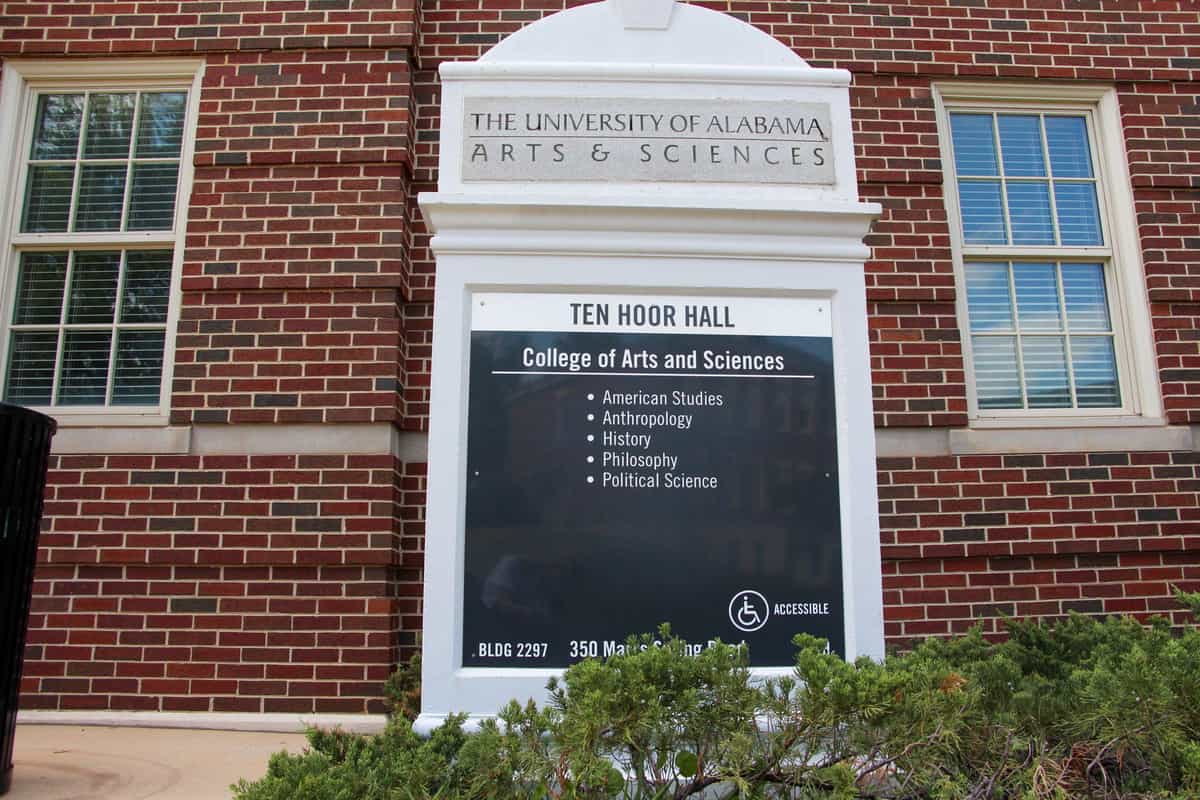You can get a master’s in public administration at The University of Alabama, but you can’t get a bachelor’s in public administration. If you want to show potential employers that you spent years studying public administration as an undergraduate, the best you can do is a minor in public policy.
“What about majoring in political science?” you might ask. What about it? Political science is a great major (I’m a political science major), but it’s not public administration.
Political science is a social science, similar to sociology, psychology and economics. Public administration as a field is focused on application, not research.
Students majoring in political science at the University basically pick their own course load, or at least which political science courses they take. A major in a field as broad as political science doesn’t tell employers that you have any real proficiency with public administration. Even a master’s in political science probably doesn’t do so.
James Caillier, a professor at the University and the director of the Master of Public Administration program, explained that “an MPA degree more closely resembles an MBA than the MA degree.”
Like Master of Business Administration programs, MPA programs are typically approved by an independent review body: the Network of Schools of Public Policy, Affairs, and Administration. The MPA is a professional degree. It’s specifically designed to show employers that the degree holder has a general skill set and level of competence.
Professional degrees are important — I want my doctor to have an MD! But when public employers are moving away from degree requirements altogether, the University has a responsibility to give students who don’t want to or can’t pursue a graduate degree the ability to show proficiency in public administration with just a bachelor’s.
“I don’t think it should be a separate undergraduate major,” Caillier said. “The undergraduate public administration courses may be enough providing that students take all or most of them.”
This offhand suggestion that students “take all or most” of the undergraduate public administration courses offered reveals another major problem with not having public administration be its own major.
As I’ve written before, we cannot expect students to plan their undergraduate coursework perfectly. When, according to Caillier, public administration courses are offered to undergraduate students only because “MPA faculty need to teach two courses a semester,” how many students will postpone a course until next semester or next school year only for that course to not be offered again before they graduate?
Offering public administration as a major would require that public administration courses are regularly offered to undergraduates. It could provide prospective civil servants with an officially recommended course load geared toward their professional ambitions. About the only thing Auburn does better than The University of Alabama is offer a bachelor’s in public administration, complete with a recommended schedule for students to get a solid grounding in public administration in a timely and reliable fashion.
But even if undergraduate-level public administration courses were plentiful and regularly offered, a major in political science would still be a poor fit for students dead set on a career in the field.
“I got my BA in Political Science from UA,” Rose Sharples, a second-year student in the MPA program, said in a GroupMe message. “I don’t think it prepared me for a career in public administration, but I do think it prepared me for my current studies.”
Sharples began her graduate education at the Capstone as a student in the political science MA program but transferred to the MPA program after a semester. “I kept feeling, throughout my undergraduate studies and my one semester in the MA program, like I was gaining a lot of knowledge that I would not necessarily be using in more administrative roles,” Sharples explained.
I was lucky enough to spend this past summer interning for the Henrico County, Virginia, Office of Management and Budget, so Sharples’ apprehensions are more than familiar. Work in the public sector has its own rhythm, requirements and restrictions — things we should ensure undergraduates looking to work in the civil service can learn about.
Sharples suggested that public administration “would be a good undergraduate major, but only in addition to the MPA program, rather than replacing it.”
Of course, the option to major in public administration as an undergraduate would help students preparing for MPA programs just as much as students who don’t want to contribute to credential creep and just want a bachelor’s degree.
Soon-to-be MPA students would be able to get a foundation in public administration before beginning their graduate-level studies. Despite his opposition to creating a public administration bachelor’s program, Caillier agreed that a bachelor’s in public administration would show an understanding of government that hiring managers are looking for.
The University’s accelerated master’s program may help students pursuing an MPA save time and money, but making public administration its own major would be real progress and not just a stopgap. We desperately need to address how the structure of a modern collegiate education can be unsympathetic to many students’ needs, and helping people pursue jobs in their chosen field with just a bachelor’s degree is one promising option.
Plus, when The University of Alabama just added four new majors, what’s one more?









